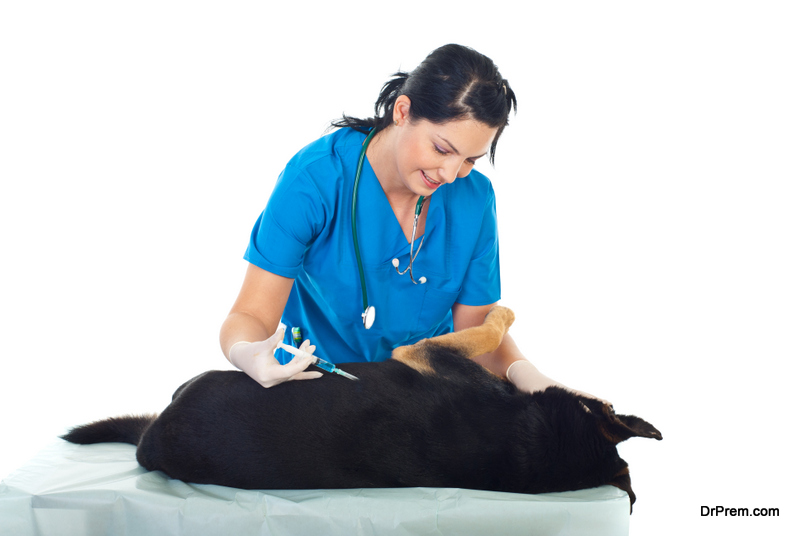Ensuring the health and well-being of animals, whether pets or livestock, is a priority for veterinarians, farmers, and pet owners alike. Comprehensive solutions for animal health encompass a wide range of services, products, and technologies designed to prevent, diagnose, and treat various health issues in animals. This article explores the key components of these solutions, highlighting the latest advancements and their impact on animal health and welfare.
Preventive Healthcare Solutions
Preventive healthcare is the cornerstone of animal health, aimed at preventing diseases and promoting overall well-being. It includes vaccinations, routine health checks, and nutritional support, which are essential for maintaining the health of both pets and livestock.
Vaccinations
Vaccinations are crucial for protecting animals from infectious diseases. They help prevent outbreaks of diseases such as rabies, distemper, and parvovirus in pets, and foot-and-mouth disease, avian influenza, and bovine viral diarrhea in livestock. Regular vaccination schedules are essential for ensuring long-term immunity and preventing the spread of infectious diseases.
For more information on the importance of vaccinations in animal health, you can visit Science Daily.
Nutritional Support
Proper nutrition plays a vital role in maintaining animal health. Nutritional supplements and specialized diets can help prevent deficiencies, support growth, and enhance immune function. For livestock, nutritional management is critical for optimizing production and maintaining the health of the herd or flock. Advances in animal nutrition have led to the development of feed formulations that meet the specific dietary needs of different species and life stages.
Diagnostic Services And Tools
Accurate and timely diagnosis is essential for effective treatment and management of animal health conditions. Advances in diagnostic tools and technologies have significantly improved the ability to detect and diagnose diseases in animals.
Advanced Diagnostic Imaging
Diagnostic imaging technologies, such as X-rays, ultrasound, and MRI, are widely used in veterinary medicine to diagnose a variety of conditions, from fractures and tumors to internal organ issues. These tools provide detailed images that help veterinarians assess the health of animals and plan appropriate treatments.
For insights into the latest advancements in diagnostic imaging for animal health, check out TechCrunch.
Laboratory Testing
Laboratory testing is another critical component of diagnostic services. Blood tests, urine tests, and tissue biopsies are used to diagnose infections, metabolic disorders, and other health issues. Advances in molecular diagnostics, such as PCR and next-generation sequencing, allow for the detection of pathogens and genetic markers, providing more accurate and timely diagnoses.
Therapeutic And Treatment Solutions
Effective treatment solutions are essential for managing and curing diseases in animals. These solutions include a range of pharmaceuticals, biologics, and medical devices designed to address various health conditions.
Pharmaceuticals And Biologics
The development of new pharmaceuticals and biologics is continuously advancing, providing more effective treatments for a wide range of animal health issues. These include antibiotics, antiparasitics, vaccines, and therapeutic proteins. Companies like TriRx are at the forefront of developing innovative treatments that improve animal health and welfare.
Surgical Interventions
Surgical interventions are sometimes necessary to treat injuries, remove tumors, or correct congenital abnormalities in animals. Advances in veterinary surgery, including minimally invasive techniques and improved anesthetic protocols, have increased the safety and effectiveness of surgical procedures, leading to better outcomes for animals.
Technological Innovations In Animal Health
Technology is playing an increasingly important role in advancing animal health, offering new tools and solutions for monitoring, diagnosing, and treating health conditions in animals.
Telemedicine And Remote Monitoring
Telemedicine is becoming a popular tool for veterinarians, allowing them to consult with pet owners and farmers remotely. This technology provides greater access to veterinary care, particularly in remote or underserved areas, and enables timely diagnosis and treatment of health issues. Remote monitoring devices, such as wearable sensors, can track vital signs and activity levels, providing valuable data that helps detect health problems early and monitor treatment progress.
For more insights into the impact of telemedicine on animal health, you can visit Science Daily.
Wearable Health Devices
Wearable health devices for animals, such as smart collars and implantable sensors, are gaining traction in the industry. These devices monitor various health metrics, including heart rate, temperature, and activity levels, providing real-time data that can help detect health issues early and monitor ongoing health conditions.
Holistic And Complementary Therapies
In addition to conventional treatments, there is a growing interest in holistic and complementary therapies for animals. These therapies focus on treating the whole animal, addressing physical, emotional, and environmental factors that can affect health.
Acupuncture And Chiropractic Care
Acupuncture and chiropractic care are increasingly being used to treat pain and improve mobility in animals. These therapies can be particularly beneficial for managing chronic conditions such as arthritis and musculoskeletal injuries. They offer a non-invasive alternative to traditional pain management methods and can complement other treatments.
Herbal And Nutritional Supplements
Herbal and nutritional supplements are used to support overall health and address specific health issues in animals. Supplements such as omega-3 fatty acids, glucosamine, and probiotics can help improve joint health, support digestive function, and enhance immune response. These natural remedies provide a complementary approach to conventional treatments and can help maintain long-term health and well-being.
For more information on the benefits of holistic therapies for animals, you can visit TechCrunch.
Regulatory And Compliance Solutions
Ensuring compliance with regulatory standards is essential for maintaining the safety and efficacy of animal health products. Comprehensive regulatory solutions help companies navigate the complex regulatory landscape and ensure that their products meet all necessary requirements.
Regulatory Consulting And Compliance Services
Regulatory consulting services provide expert guidance on regulatory requirements and help companies develop and implement compliance strategies. These services include assistance with product registration, labeling, and quality assurance, ensuring that animal health products comply with all relevant regulations and standards.
Quality Assurance And Control
Quality assurance and control are critical for maintaining the safety and effectiveness of animal health products. Comprehensive quality management systems help ensure that products are manufactured to high standards and meet all necessary specifications. This includes regular testing and inspection, as well as continuous monitoring and improvement of manufacturing processes.
Article Submitted By Community Writer




